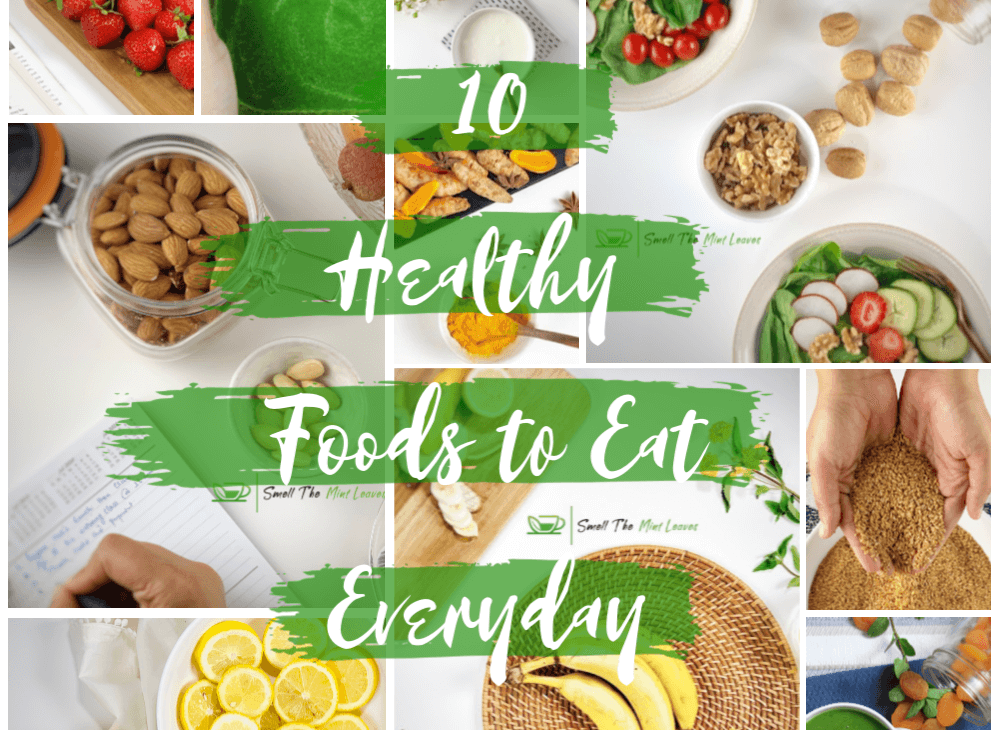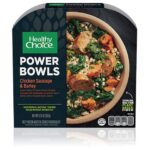The healthiest thing to eat every day is leafy greens. They are packed with essential nutrients and antioxidants.
Leafy greens, such as spinach, kale, and Swiss chard, offer numerous health benefits. These greens are rich in vitamins A, C, and K, as well as minerals like iron and calcium. They are low in calories yet high in fiber, making them ideal for weight management.
Consuming leafy greens daily can improve digestion, boost immunity, and reduce the risk of chronic diseases. Their antioxidants help fight inflammation and oxidative stress. Including a variety of leafy greens in your diet ensures you get a wide range of nutrients. Enjoy them in salads, smoothies, or cooked dishes for a delicious and nutritious addition to your meals.
Introduction To Superfoods
Superfoods are nutrient-rich foods that offer numerous health benefits. They are packed with vitamins, minerals, and antioxidants. Including superfoods in your daily diet can improve your overall health. These foods are often plant-based but also include some fish and dairy.
Defining Superfoods
Superfoods are foods that have a high nutrient density. This means they provide a lot of nutrients for a small amount of calories. They are typically rich in vitamins, minerals, and antioxidants. Common examples include berries, nuts, seeds, and leafy greens.
Importance Of Daily Nutrition
Daily nutrition is essential for maintaining good health. Eating the right foods helps your body function properly. Superfoods can play a big role in a balanced diet. They provide essential nutrients that your body needs to stay healthy.
Examples of Superfoods
- Berries: Rich in antioxidants and vitamins.
- Nuts and Seeds: Great sources of healthy fats and proteins.
- Leafy Greens: Packed with vitamins and minerals.
- Salmon: High in omega-3 fatty acids.
Benefits of Superfoods
- Boost immune system.
- Improve heart health.
- Enhance brain function.
- Support weight management.
Including superfoods in your daily diet can improve your health. Start with small changes to see big benefits.
Leafy Greens
Leafy greens are some of the healthiest foods you can eat every day. These vegetables are packed with nutrients and offer numerous health benefits. Including them in your daily diet can improve overall well-being.
Nutrient Profile
Leafy greens are nutrient-dense and low in calories. They are rich in vitamins, minerals, and antioxidants. Here is a table showing key nutrients found in common leafy greens:
| Leafy Green | Vitamin A | Vitamin C | Calcium | Iron |
|---|---|---|---|---|
| Spinach | 56% DV | 14% DV | 10% DV | 15% DV |
| Kale | 206% DV | 134% DV | 9% DV | 6% DV |
| Swiss Chard | 44% DV | 18% DV | 10% DV | 22% DV |
| Romaine Lettuce | 148% DV | 4% DV | 2% DV | 2% DV |
Health Benefits
Eating leafy greens provides numerous health benefits:
- Improves Digestion: High in fiber, leafy greens aid digestion.
- Boosts Immunity: Rich in vitamins A and C, they support the immune system.
- Strengthens Bones: Containing calcium and vitamin K, they promote bone health.
- Reduces Inflammation: Antioxidants help reduce inflammation in the body.
- Supports Heart Health: Nutrients in leafy greens can lower blood pressure.
Including a variety of leafy greens in your diet ensures you get a range of nutrients. This can lead to better overall health and wellness.
Berries
Berries are small, colorful fruits packed with nutrients. They are delicious and easy to eat. From strawberries to blueberries, each berry type offers unique health benefits.
Antioxidant Power
Berries are rich in antioxidants. Antioxidants help fight free radicals in the body. Free radicals can cause cell damage. Eating berries can reduce this damage. This helps in preventing chronic diseases.
Some common antioxidants in berries include:
- Vitamin C: Boosts the immune system.
- Anthocyanins: Reduces inflammation.
- Quercetin: Supports heart health.
Versatile Uses
Berries can be enjoyed in many ways. You can eat them fresh or frozen. They are perfect for smoothies and desserts. Adding berries to your diet is simple and tasty.
Here are some ideas:
- Breakfast: Add berries to your oatmeal.
- Snacks: Mix berries with yogurt.
- Desserts: Bake berries into muffins or pies.
| Berry Type | Health Benefit | Usage |
|---|---|---|
| Strawberries | Rich in Vitamin C | Great for salads |
| Blueberries | High in antioxidants | Perfect for smoothies |
| Raspberries | Good source of fiber | Ideal for desserts |
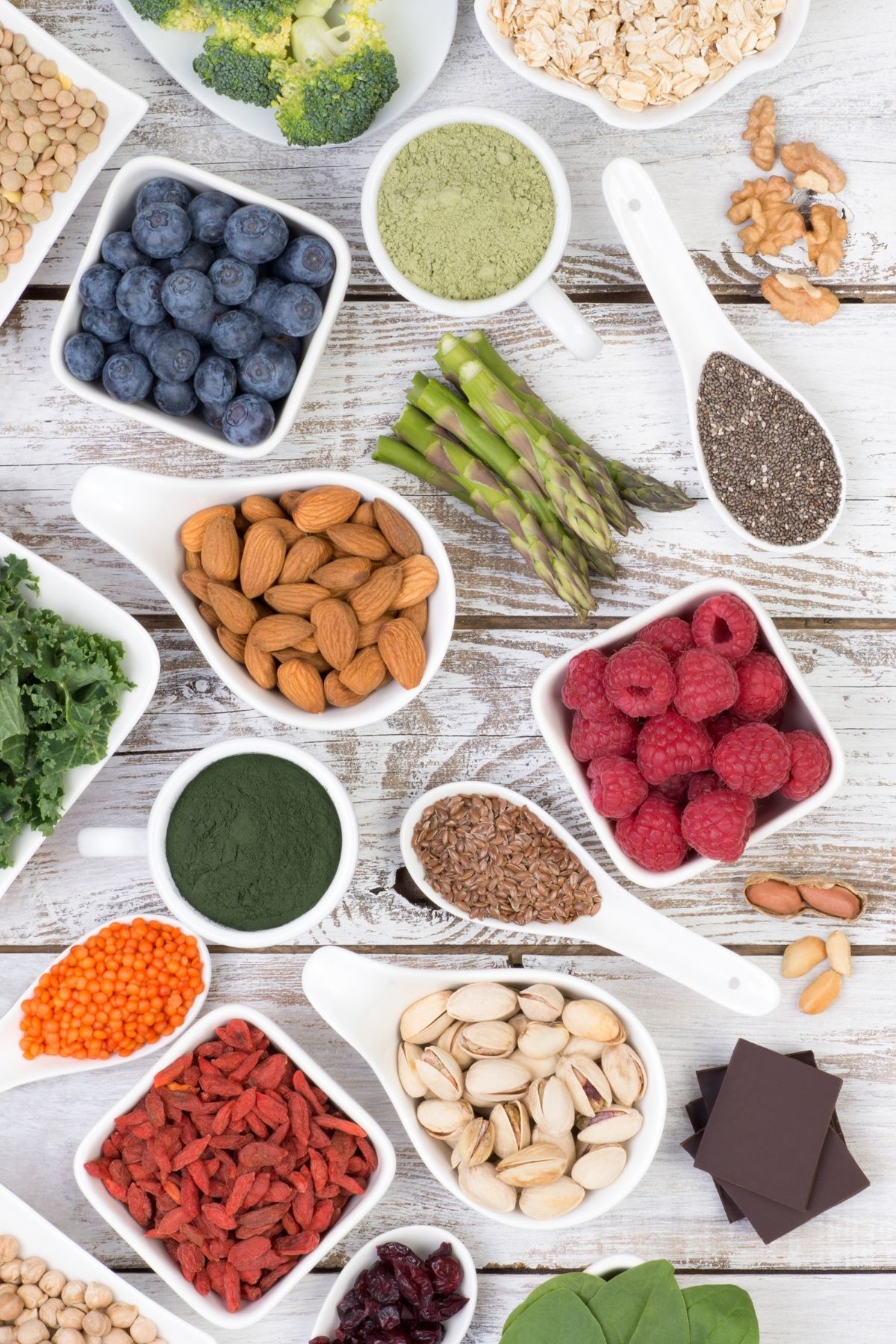
Credit: www.cleaneatingkitchen.com
Nuts And Seeds
Nuts and seeds are tiny powerhouses of nutrition. They offer numerous health benefits when eaten daily. Packed with essential nutrients, they can improve your overall health. Their unique nutrient profile makes them perfect for a balanced diet.
Nuts and seeds are rich in healthy fats. These fats are vital for heart health. They help reduce bad cholesterol levels. This can lower the risk of heart disease.
Here are some examples of nuts and seeds with healthy fats:
- Almonds
- Walnuts
- Flaxseeds
- Chia seeds
Omega-3 fatty acids in walnuts and flaxseeds are particularly beneficial. These fats also support brain health. They can improve cognitive function and reduce inflammation.
Protein Source
Nuts and seeds are excellent sources of plant-based protein. Protein is essential for muscle growth and repair. It also helps keep you full longer, aiding in weight management.
Here is a comparison of protein content in various nuts and seeds:
| Type | Protein per 28g |
|---|---|
| Almonds | 6 grams |
| Pumpkin Seeds | 7 grams |
| Peanuts | 7 grams |
| Sunflower Seeds | 5 grams |
Nuts and seeds are also high in fiber. This helps with digestion and keeps the gut healthy.
Incorporate a variety of nuts and seeds into your diet. This ensures you get a range of nutrients. Enjoy them as snacks or add them to meals for a nutritional boost.
Whole Grains
Whole grains are a staple in many diets around the world. They are packed with essential nutrients and offer numerous health benefits. Including whole grains in your daily diet can improve overall health and well-being.
Fiber Content
Whole grains are rich in dietary fiber. Fiber helps in digestion and prevents constipation. It keeps you feeling full longer, aiding in weight management. Some common sources of whole grains include:
- Brown rice
- Quinoa
- Oats
- Whole wheat bread
Fiber also helps in regulating blood sugar levels. This makes whole grains a great choice for people with diabetes.
Heart Health
Eating whole grains benefits heart health. They help in reducing bad cholesterol levels. This lowers the risk of heart disease and stroke.
Whole grains contain antioxidants. These antioxidants protect your heart and blood vessels. Include whole grains in your meals to maintain a healthy heart.
| Whole Grain | Benefits |
|---|---|
| Oats | Lower cholesterol |
| Quinoa | Rich in protein |
| Brown Rice | High in magnesium |
Whole grains are versatile and easy to include in your diet. Start your day with a bowl of oatmeal or a slice of whole wheat toast. Your heart will thank you!
Lean Proteins
Eating lean proteins daily is vital for maintaining overall health. They provide essential amino acids and help build and repair tissues. Lean proteins are low in unhealthy fats and calories, making them perfect for a balanced diet.
Muscle Building
Consuming lean proteins promotes muscle growth and repair. They contain essential amino acids, which are the building blocks of muscles. Popular sources include:
- Chicken breast: Packed with protein and low in fat.
- Turkey: A lean meat option with high protein content.
- Fish: Salmon and tuna offer lean protein and healthy fats.
- Eggs: Whole eggs and egg whites are excellent choices.
Including these foods in your diet helps enhance muscle strength and recovery.
Weight Management
Lean proteins can aid in weight management by keeping you fuller for longer. They help curb cravings and reduce overall calorie intake. Here are some lean proteins for weight management:
| Protein Source | Calories (per 100g) | Protein Content (per 100g) |
|---|---|---|
| Chicken Breast | 165 | 31g |
| Turkey | 135 | 29g |
| Salmon | 206 | 20g |
| Egg Whites | 52 | 11g |
Eating these proteins can help you maintain a healthy weight. They keep you feeling satisfied and energized throughout the day.
Fermented Foods
Fermented foods are gaining popularity for their numerous health benefits. These foods undergo a process where natural bacteria feed on the sugar and starch, creating lactic acid. This process preserves the food and creates beneficial enzymes, B vitamins, omega-3 fatty acids, and probiotics.
Gut Health
Fermented foods play a crucial role in maintaining gut health. They introduce beneficial bacteria into the digestive system. These bacteria help balance the gut microbiome. A balanced microbiome is essential for digestion and nutrient absorption.
Consuming fermented foods can reduce gut inflammation. This helps in conditions like IBS and Crohn’s disease. Common fermented foods include:
- Yogurt
- Kimchi
- Sauerkraut
- Kefir
These foods are rich in probiotics, promoting a healthy gut environment. A healthy gut impacts overall health, including mental well-being and immune function.
Probiotic Benefits
Fermented foods are a natural source of probiotics. Probiotics are live bacteria that offer health benefits when consumed. They help restore the natural balance of gut bacteria. This is especially useful after antibiotic treatments.
Probiotics can aid in:
- Improving digestion
- Boosting immunity
- Reducing the risk of infections
They also help in producing vitamins like B12 and K2. These vitamins are crucial for energy production and bone health. Regular intake of probiotic-rich foods can improve skin health, mood, and energy levels.
| Fermented Food | Probiotic Strain | Health Benefit |
|---|---|---|
| Yogurt | Lactobacillus | Improves digestion |
| Kimchi | Leuconostoc | Boosts immunity |
| Kefir | Lactobacillus kefiri | Reduces infections |
Fermented foods are easy to incorporate into your diet. Start with a small portion and increase gradually. This helps your gut adjust to the new beneficial bacteria.
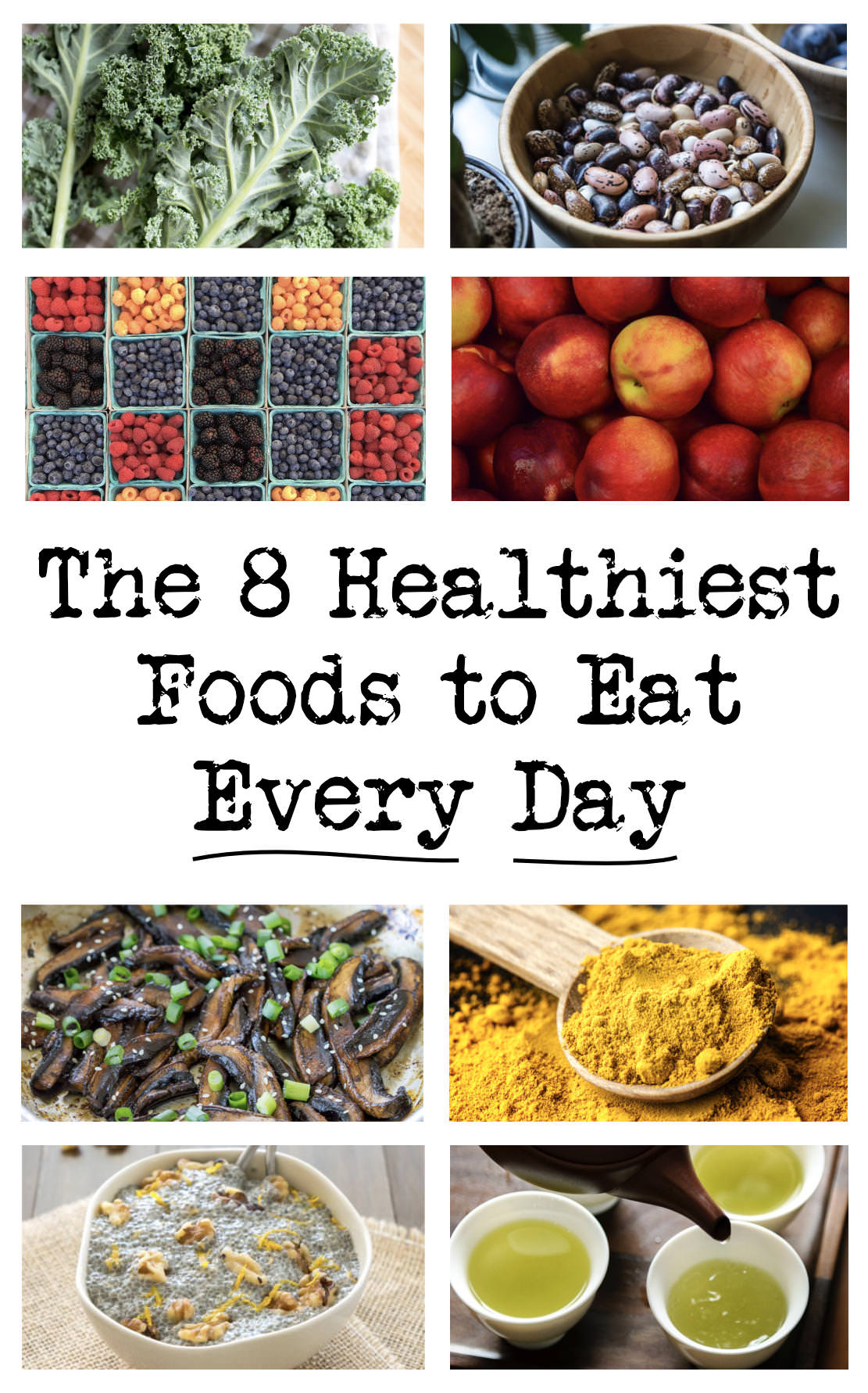
Credit: oneingredientchef.com
Healthy Fats
Healthy fats are essential for our bodies. They help us absorb vitamins, provide energy, and support cell growth. Including healthy fats in your daily diet can improve your overall health.
Types Of Healthy Fats
There are different types of healthy fats. Each type offers unique benefits:
- Monounsaturated Fats: Found in olive oil, avocados, and nuts.
- Polyunsaturated Fats: Found in fish, flaxseeds, and walnuts.
- Omega-3 Fatty Acids: Found in salmon, chia seeds, and hemp seeds.
Monounsaturated fats can reduce bad cholesterol levels. Polyunsaturated fats can help reduce inflammation. Omega-3 fatty acids are known for their heart health benefits.
Role In Brain Health
Healthy fats play a crucial role in brain health. The brain is nearly 60% fat. Omega-3 fatty acids are vital for brain function. They help with memory and performance.
Healthy fats can improve mood and reduce the risk of depression. Including a good amount of healthy fats daily supports cognitive function.
| Type of Fat | Source | Health Benefit |
|---|---|---|
| Monounsaturated Fat | Olive Oil, Avocados | Reduces Bad Cholesterol |
| Polyunsaturated Fat | Fish, Flaxseeds | Reduces Inflammation |
| Omega-3 Fatty Acid | Salmon, Chia Seeds | Supports Heart and Brain Health |
Hydration
Staying hydrated is crucial for maintaining overall health and well-being. Proper hydration helps your body function efficiently and can prevent various health issues. Let’s explore the importance of water and hydrating foods that can help you stay hydrated every day.
Importance Of Water
Water is essential for life. It makes up about 60% of your body weight. Drinking enough water helps maintain the balance of bodily fluids. These fluids are vital for digestion, circulation, and nutrient transportation.
Water also helps regulate body temperature. When you sweat, water evaporates from your skin, cooling you down. Staying hydrated ensures your muscles and joints work better, reducing the risk of cramps and injuries.
Drinking water can also aid in weight management. It helps you feel full, reducing the likelihood of overeating. Water is a zero-calorie drink, making it a great choice for those watching their weight.
Hydrating Foods
Eating foods with high water content can supplement your water intake. They provide both hydration and essential nutrients. Here are some hydrating foods to include in your daily diet:
| Food | Water Content |
|---|---|
| Cucumber | 95% |
| Watermelon | 92% |
| Strawberries | 91% |
| Spinach | 91% |
| Oranges | 86% |
Cucumber is incredibly hydrating and low in calories. It’s perfect for salads and snacks. Watermelon is not only hydrating but also rich in vitamins A and C. Strawberries are sweet, delicious, and packed with antioxidants.
Spinach is a leafy green that provides hydration and essential nutrients like iron. Oranges are juicy and packed with Vitamin C, which boosts your immune system.
Including these hydrating foods in your diet ensures you stay hydrated while enjoying various health benefits. Aim to drink enough water and eat hydrating foods every day for optimal health.
Combining Superfoods
Eating healthy can be fun and tasty. Combining superfoods gives your body the nutrients it needs. Superfoods are rich in vitamins, minerals, and antioxidants. They help boost your immune system, reduce inflammation, and improve overall health.
Let’s dive into how to create a balanced diet with these superfoods. Check out some easy meal ideas to get you started.
Balanced Diet
A balanced diet includes a variety of foods. This ensures you get all the essential nutrients. Here are some key elements:
- Fruits and Vegetables: Aim for a colorful plate. Each color offers different nutrients.
- Whole Grains: Choose brown rice, quinoa, and oats. They are high in fiber and keep you full longer.
- Lean Proteins: Opt for chicken, fish, tofu, and beans. These help build and repair tissues.
- Healthy Fats: Include avocados, nuts, and olive oil. They support brain health and reduce inflammation.
Meal Ideas
Combining superfoods into your meals is easy. Here are some delicious ideas:
| Meal | Ingredients |
|---|---|
| Breakfast |
|
| Lunch |
|
| Dinner |
|
Remember to drink plenty of water throughout the day. Staying hydrated is key to maintaining good health. Enjoy experimenting with these superfoods and feel the benefits!
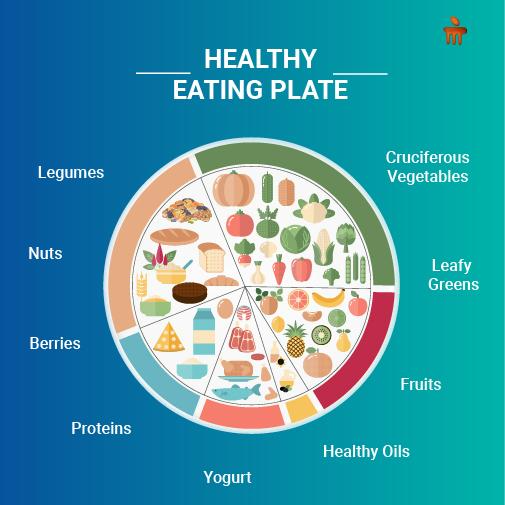
Credit: www.manipalhospitals.com
Frequently Asked Questions
What Is The Healthiest Food To Eat Daily?
Leafy greens like spinach and kale are nutrient-rich and excellent daily choices.
Can I Eat Fruit Every Day?
Yes, fruits provide essential vitamins, fiber, and antioxidants for a healthy diet.
How Much Water Should I Drink Daily?
Aim for 8 cups (64 ounces) of water each day to stay hydrated.
Are Nuts Healthy For Daily Consumption?
Yes, nuts offer protein, healthy fats, and essential nutrients. Moderation is key.
What Are The Benefits Of Whole Grains?
Whole grains improve digestion, provide sustained energy, and lower the risk of chronic diseases.
Is It Good To Eat Yogurt Every Day?
Yes, yogurt supports gut health with probiotics and provides calcium and protein.
Should I Include Protein In Every Meal?
Yes, protein aids muscle repair, boosts metabolism, and keeps you full longer.
Conclusion
Choosing the healthiest food to eat daily can significantly improve your overall well-being. Incorporate a variety of vegetables, fruits, lean proteins, and whole grains into your diet. Consistency is key to maintaining good health. Prioritize nutrient-rich foods, stay hydrated, and listen to your body’s needs for optimal results.


